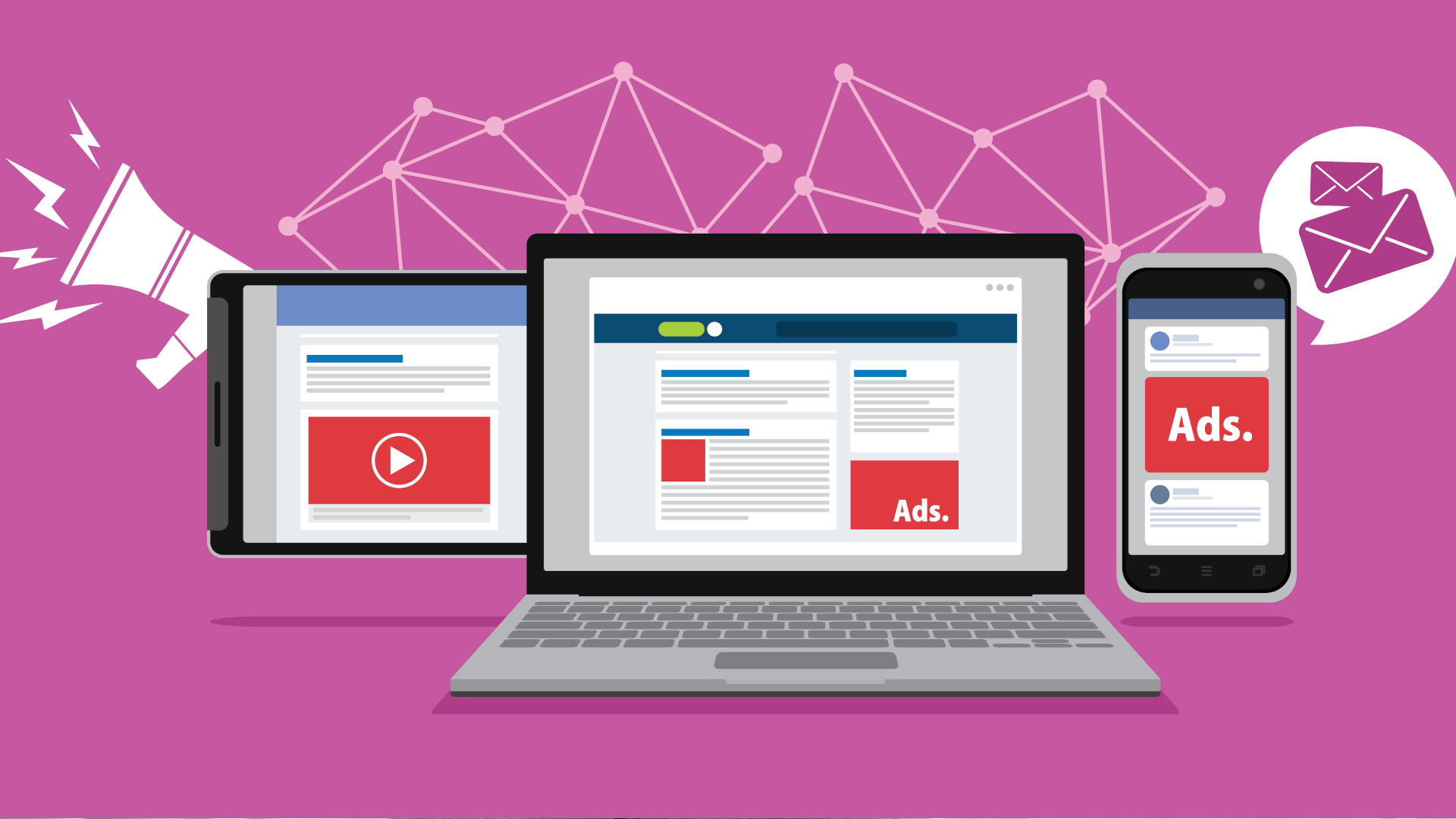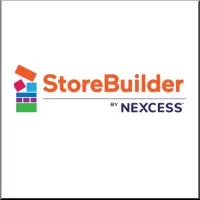Five things you need to know about free ecommerce website builders
The advantages and disadvantages of choosing a free solution for your online store

Sign up for breaking news, reviews, opinion, top tech deals, and more.
You are now subscribed
Your newsletter sign-up was successful
From creating an online store and setting up product pages, to finding the right ways to reach core customers and sell products to them, there are plenty of moving parts to take care of with an ecommerce site. Therefore, it’s important to pick up a set of tools that’ll make the otherwise daunting task of building an online store as straightforward as it gets.
With plenty of ecommerce site-creation tools on the web and new solutions coming out at an unprecedented pace, starting an online store is simpler than ever. However, with so many options around, making the right choice is all the more complex. You’ll want to check out the ease of use, functionality, customizability, security, support, marketing, and analytics tools, but also the overall cost.
There are all sorts of tools for building an ecommerce store but only a small number of them come at almost no cost at all. So, if you’re working on a shoestring budget but still wish to sell online there are a couple of ways you can do it: by utilizing free ecommerce software (such as WooCommerce), a professional store-builder with a free trial (like Squarespace), or an online store builder that offers a free plan (such as Weebly).
Also, some supposedly free site builders will let you set up your online store completely free of charge but will start charging when the sales start sailing in. This is why there is a lot to take into account when choosing one solution over the other.
Since there’s no simple answer, we’ve made a list of the five most important things you should know about free ecommerce site builders before picking out one of them.
Try StoreBuilder Risk Free For 30 Days
Create an online store that’s customized, beautiful, and unique in just a few clicks with StoreBuilder by Nexcess. Hundreds of dollars worth of features bundled for only $19 a month.
1. You’ll still have to purchase some services
As with everything in life, if an ecommerce website builder comes at no cost, there must be some sort of catch? Well, the truth is that most free site-building tools come with some strings attached.
First of all, the term ecommerce site builder shouldn’t be confused with a proprietary ecommerce platform (like BigCommerce), which is an end-to-end solution that comes with everything required for creating and running a professional online store. As such, an ecommerce platform is a hosted solution that’s also referred to as a software-as-a-service (SaaS) model of delivery. This implies that web hosting services come in the same package as all other ecommerce site essentials.
Sign up to the TechRadar Pro newsletter to get all the top news, opinion, features and guidance your business needs to succeed!
By contrast, an ecommerce site builder is similar to any other website builder (only infused with ecommerce powers) which means that the responsibility of setting up a server or selecting a suitable web hosting provider is yours, and yours alone. What’s more, with a free site builder you’ll also be expected to own a domain name, while an ecommerce platform will take care of that task as well. In simple terms, an ecommerce site builder can be a part of an ecommerce platform, but it can’t be the other way around.
Therefore, by opting for a site builder (whether free or paid), you’ll also be spending a few bucks per month (at least) for a web hosting service and around twelve bucks per year (also at least) for domain name registration.
When it comes to domains, we should note that with most free plans you won’t get the chance to use a custom domain name, which means you'll be compelled to create a subdomain linked to the company’s domain. This can make your web address (URL) look amateurish and cast doubt on the credibility of your ecommerce business as a whole.
To connect your domain to the new site builder and make sure your online store’s web address instills confidence into your soon-to-be customers, you’ll probably need to upgrade your free plan to a paid one. The same is true if you wish to connect multiple domains, purchase new ones, or get a custom domain name.
Although using a subdomain is perfectly fine for a personal site, if you’re setting up an online store it’s worth having your own domain name. While you’re at it, you can get creative with domain extensions (for instance, .shop, .store, or .shopping), or, you can go with one of the good old top-level domains (like .com, .org, and .net).

2. You’ll store might get brutally bombarded with ads
When thinking about ads, the first thing that pops into your mind might be selling ad space with an intent to make a couple of bucks on the side. However, these ads are (mostly) the annoying ones and, more often than not, they come packaged with free ecommerce site builders.
For instance, with free plans, your site could be complemented with an ad on top of each page, which might not be a big deal for a personal blog or a non-profit business. However, if you’re running a professional ecommerce site this could be a deal-breaker.
Let’s take Wix as an example. With their free plan, you can create a stunning ecommerce site, but if you don’t upgrade to a paid plan straight away Wix ads will appear on each and every page and as a favicon in your URL.
Annoying ads are on a par with annoying pop-ups, an absence of an “About” page, or failing to update your blog. They are among the more questionable choices that can make your site appear less professional, so weigh your options carefully.
However, the worst bit about allowing ads on your ecommerce site is that sometimes your cunning competitors can purchase ad space on your site from your free provider and steal your customers like it’s nothing. So, by trying to save some cash you could be inadvertently self-sabotaging your ecommerce business and that’s a warning sign you cannot afford to take lightly when starting out.
3. You can get a free plan with many brand-name ecommerce site builders but don’t expect much besides bare bones
If you dream about setting up a stunning online store that’ll stand out in the crowd with a unique charm to draw in customers from all corners of the world, that dream is farther from coming true than you might think with a free ecommerce builder. Although with many brand-name ecommerce site builders (like Weebly, Wix, and Jimdo) you can get started for free, if you wish for anything other than a stripped-down site, you’ll be pressed to upgrade your plan to a paid one as soon as it’s feasible.
For instance, with Wix’s free plan you’ll get access to their site editors, but you’ll find the plan lacking in customization tools, which means your online store could end up looking like any other store built with the same builder. Also, you probably won’t be able to add any advanced features to your store such as apps and integrations which will further handicap its functionality.
Another problem that might arise with most free ecommerce site builders is the lack of clarity when it comes to free features that are actually available. You might be in the middle of making your store before you realize that you don’t have access to certain core functionalities.
For instance, with certain site builders that possess ecommerce functionality (like Wix) you’ll get everything you need to build an online store, but won’t be able to add products or receive payments, which makes all of it pretty pointless.
In contrast, with paid site builders you can expect to get all the essential ecommerce features (like product pages, a shopping cart, and payment options), but also smart site-building functionalities with which you’ll create most of your site’s design almost automatically. This is made easier by utilizing ready-made templates and tailoring them to your needs.
While most paid ecommerce site builders come with plenty of mobile-friendly themes and templates fit for all sorts of stores, with a free site builder your store is at risk of looking like other stores.
With open-source software created for ecommerce (such as WooCommerce, Magento, and PrestaShop) the level of customizability is colossal and if you dig deep you’ll discover thousands of fully functional themes and templates spread around the web. However, to get a grasp of it you’ll need to have a certain level of technical know-how.
Another area of your ecommerce site that shall suffer from a free plan concerns the site's resources and ultimately, its performance. With most free plans you can hope to get something between 500MB and 1GB of storage space, which is not too bad for a small starter site. However, larger sites with loads of traffic can’t do with less than 5GB as it can slow loading time and cause poor overall performance.
Last but not least, we need to talk about search engine optimization (SEO) and marketing tools. If you have in-depth knowledge of SEO and have a solid SEO strategy, you might be able to get away without having SEO tools at your disposal. If not, you’ll probably want to upgrade your free plan to a premium one since with almost all free site builders (or free plans) you won’t be getting any SEO tools.
The same holds true for marketing tools as well as for analytics services, both of which are usually unavailable with free plans yet are a must if you wish to optimize your online store for success.

4. It is a do-it-yourself sort of solution, so get ready to roll up your sleeves
If you’re serious about running an ecommerce business, offering solid support should be high on your list of priorities. At the same time, you need to make sure that you have solid support for your ecommerce site, since many things can go wrong while creating, launching, and running an online store.
If a site builder’s provider offers customer support only during work days, via e-mail only, and waits for a couple of days before offering any kind of response, then it’s not a provider you want to choose. Although being offered around-the-clock customer support via telephone, live chat, and a ticketing system isn't something we often see with a free plan, finding a provider that does at least a part of this can be considered a winner.
The trouble is, if you’re using a free plan you’ll probably be offered only a speck of support that paid users are taking for granted. However, when it comes to helpful resources such as a knowledgebase, video guides, and a FAQ section there should be plenty of options since paid and free users are rarely segregated in terms of self-services. So, if you don’t mind rolling up your sleeves and searching for a solution on your own, then a free ecommerce site builder might be right up your alley.
5. It’s too limited for a professional ecommerce site
Besides providing the basic set of tools only, free ecommerce site builders will also put severe limits on your site: the number of pages you can create, not allowing you to add a domain name, and restricting your site’s resources (like RAM, bandwidth, and disk space).
Therefore, even if your ecommerce business sets off successfully, with such limitations and all advanced features locked away behind a paid plan it won’t be long before it starts running into serious problems. The only solution seems to be upgrading a free plan to premium or, better still, avoiding a cost-free option in the first place.
However, if you’re only planning to use the site as a personal blog, portfolio, or for any other non-profit purpose (which you probably aren’t), then a free ecommerce site builder could be a suitable choice. Also, if you’re just getting into ecommerce with a burning desire to try out any sort of ecommerce site builder without having a clear idea of what you actually wish to achieve, then give it a go.
In any other case, we wouldn’t recommend using a free ecommerce site builder for a professional ecommerce site.

So, should you take a crack at free ecommerce site builders?
The choice between free and paid site builders comes down to what you are planning to use your soon-to-be-created site for. If you don’t intend to monetize your site in any way, then both a free ecommerce site builder and a proprietary one that provides a cost-free plan are applicable alternatives.
However, if you aim to create a professional ecommerce site then you should choose between a paid plan and an open-source solution, knowing that the latter is a more suitable option for skilled users.
We've also featured the the best payment gateways and the best cloud hosting
Mirza Bahic is a freelance tech journalist and blogger from Sarajevo, Bosnia and Herzegovina. For the past four years, Mirza has been ghostwriting for a number of tech start-ups from various industries, including cloud, retail and B2B technology.
